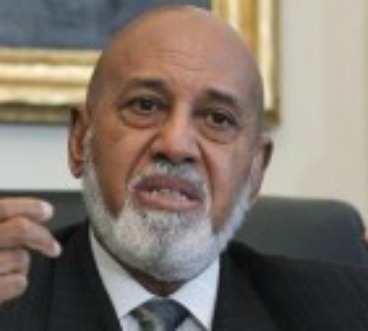Mr. HASTINGS of Florida. Mr. Speaker, I rise today to support H. Res. 3320, introduced by my friend and colleague, Mr. SMITH of New Jersey. This bill would authorize the United States to provide $5 million to assist in the development of the permanent collection of the Museum of the History of Polish Jews.
This past May, I had the opportunity to travel to Poland and, while there, met with Jerzy Halbersztadt, the director of the museum, and Ewa Wierzynska, the deputy director. The museum they are helping to establish is truly an historical undertaking and one that deserves the support of the United States.
Warsaw was once home to the largest Jewish community in Europe, and if we are to truly understand what was lost in the Holocaust, we must try to wrap our minds not only around the figure of 6 million, but around the 1,000 years of Polish Jewish life that preceded that tragedy. Poland is not only a place where Jews died, but a place where they lived and flourished. Moreover, it is estimated that 80 percent of all Jews and over nine million Americans trace some of their ancestry to the Polish Jewish community. This museum has the potential to touch the lives of our own citizens in deeply personal ways.
As chairman of the Helsinki Commission, I am heartened by the educational role this museum can play in fulfilling the goals that the OSCE participating States have undertaken in the field of combating anti-Semitism. I believe this museum will contribute to tolerance and mutual respect in Poland, will help counter the broader phenomenon of anti-Semitism in Europe, and will serve as an inspiration to the thousands of visitors who will come every year. The historical record of the Polish Jewish community must be preserved and shared with future generations.
Unfortunately, my own schedule did not permit me to return to Poland for the June 26 groundbreaking ceremony for the museum, which will be located in the heart of the pre-World War II Jewish district and next to the monument to the Jews who resisted the Nazis during the 1943 ghetto uprising. However, I did send a member of the Helsinki Commission staff, who witnessed firsthand the extraordinary turnout for this event. Among those present was the Chief Rabbi of Tel Aviv Meir Lau, whose parents were from Poland and who suggested that invited Iranian President Mahmoud Ahmadinejad, who has denied the Holocaust, be among the first to visit the museum.
I don’t know if the Iranian President will accept this invitation, but I have no doubt that many Americans will be among the 500,000 people who are expected to visit the museum on an annual basis. I urge my colleagues to join me in supporting this extraordinary museum, with an extraordinary mission.





